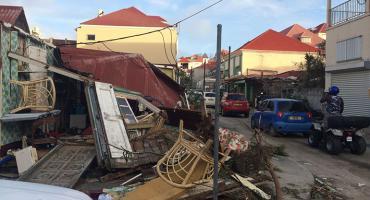
Estimated insurance losses from Hurricane Irma have reached $7.2 billion, as more than 877,000 claims have been filed since the September storm, according to information released Monday by the state Office of Insurance Regulation.
More than 83 percent of the claims involve residential property, with most in South Florida.
Irma, which has been linked to 84 deaths in Florida, made landfalls Sept. 10 in Monroe and Collier counties before barreling up the state, creating evacuation problems and widespread damage in the agriculture industry.
The insurance figures are expected to continue to increase over the next year as claims continue to trickle in.
In numbers released Dec. 18 by the office, insured losses were estimated at $6.55 billion. Since that time 11,869 new claims had been submitted as of Friday afternoon.
Just over half the overall 877,843 claims have been closed with some payment. Another 32 percent were closed without money changing hands.
The state doesn’t release figures for individual companies.
Meanwhile, state-backed Citizens Property Insurance had received 64,682 claims from Irma as of Monday. Most were in Miami-Dade, Broward and Monroe counties. Just over half have been closed with some payment, Citizens spokesman Michael Peltier said.
Citizens anticipates its number of Irma claims will grow to 70,000, with $1.2 billion in damages, over the next year.
Citizens President and CEO Barry Gilway has said he expects the storm to increase Citizens' policy count from “about 442,000 policies back up to 500,000” this year.
In the overall industry, Miami-Dade County has the largest number of Irma-related claims, with 115,548, according to the Office of Insurance Regulation numbers. Other counties with large numbers of claims include Broward, 73,096; Orange, 69,201; Lee, 66,445; and Collier, 65,692.
To reduce risk in Florida, the House Select Committee on Hurricane Response and Preparedness has received a number of potential housing changes --- as part of more than 160 overall recommendations --- for lawmakers to consider during the 2018 legislative session, which begins Tuesday.
The committee was expected to review its proposals on Monday, but last week was given until Jan. 16 as Chairwoman Jeanette Nunez, R-Miami, wanted members to have more time to evaluate the proposals.
The committee is looking at a wide range of proposals, such as ideas to speed evacuations when big storms threaten the state. Those evacuation ideas include using passenger trains, using a cruise ship to get people out of the Lower Keys and extending the Suncoast Parkway toll road north of the Tampa Bay area.
Other potentially high-profile recommendations include such things as strategically locating petroleum distribution centers and requiring utility lines to be placed underground.


